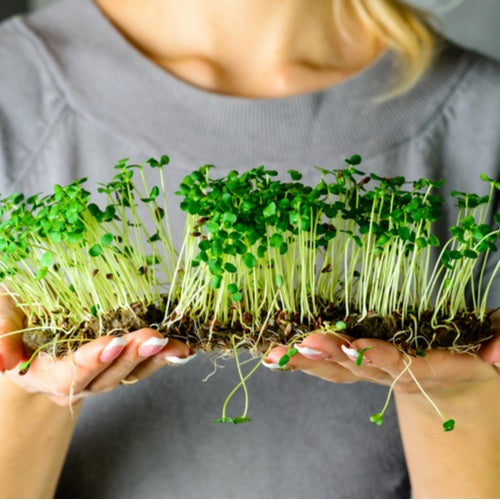Introduction
Unchecked inflammation weakens our immunity, makes us feel sluggish and fatigued and increases our likelihood of becoming seriously ill.
According to Harvard Medical School, the process involved in a chronic inflammatory response plays a central role in the development of threatening disease, including rheumatoid arthritis, cancer, heart disease, diabetes, asthma, and Alzheimer’s.
In order to resolve inflammation, we must first eliminate inflammatory triggers as much as we possibly can. Once we’ve reduced our toxic exposure, we must take steps to soothe inflammation so that our bodies can heal. Let’s take a look at some of the remedies we can use to naturally and gently reduce inflammation..

Aloe Vera
Often called “The Miracle Plant”, aloe vera has been used for internal and external healing for at least 5,000 years! The Americal School of Natural Health recommends aloe vera for soothing internal damage as well as increasing energy, detoxifying and fighting infection.
When shopping for aloe vera juice, you’ll have a choice between whole plant or inner fillet. The inner fillet is wonderfully inflammatory and powerfully effective at soothing inflammation. The whole plant has the same benefits as the inner fillet, along with additional healing properties. Whole lead aloe vera juice contains the bitter components of the rough outer skin which are particularly beneficial for our digestive tracts.
Whole plant aloe vera stimulates motility of the gut, relieving constipation. Aloe vera juice also reduces irritable bowel, diarrhea and colitis while soothing gut inflammation and eliminating bloating and even restores beneficial gut bacteria.
Ginger
Dr. David Jockers is a doctor of natural medicine and functional nutritionist who strongly recommends ginger for reducing inflammation. According to Dr. Jockers, ginger reduces intestinal gas and soothes the intestinal tract while promoting motility and increasing productions of bile.
You can use Dr. Jockers’ anti-inflammatory ginger ale recipe to make your own soothing and healthful tonic. Traditionally, ginger ale was produced by fermenting ginger tea. Modern commercially available ginger ales are a little more than carbonated water with loads of sugar and chemical flavourings. But homemade ginger ale is rich in B vitamins along with enzymes and probiotics.
You’ll need:
- 2 Tablespoons Coconut Water Kefir (available at health stores or online)
- 1-2 cups Coconut Water
- 2-4 oz freshly grated Ginger
Combine all ingredients and allow to ferment for just 24 hours.
Turmeric
One of the active ingredients in turmeric, curcumin, is so powerfully anti-inflammatory that it matches the effectiveness of some anti-inflammatory drugs, but without the side effects.
Indians have been taking advantage of the healing power of turmeric for thousands of years, in Ayurvedic medicinal formulas and in aromatic culinary delights, like curry.
You can cook with turmeric or take turmeric capsules to ensure you are getting enough of this gut-healing formula from the ancient tradition of Ayurveda.
Anti Inflammatory Golden Milk
1) Heat 2 cups unsweetened coconut milk
2) Add 1/2 tablespoon grated ginger
3) Add 1 tablespoon grated turmeric
4) Add 3 black peppercorns
5) Heat and simmer for 10 minuts, stirring frequently
6) Strain and serve
Celery Juice
Celery juice is a favourite recommendation of gut health expert Dr. Daniel Nuzum. A powerful anti-inflammatory agent, celery is also rich in protective antioxidants and is a source of important nutrients, like sodium and potassium.
The high potassium content means that celery juice helps our cells absorb more nutrients and fluids. It also supports detoxification. According to Dr. Partha Nandi, celery juice not only removes toxins, wastes and contaminants from the body but also cleanses the liver and enhances its ability to filter toxins.
To get the most benefits, drink 16 ounces of pure, organic, fresh celery juice in the morning. Wait at least 15 minutes before eating any food. If 16 ounces is too much, just start with a smaller amount and work your way up. If the taste is too strong, you can add cucumber or apple until you get used to the flavor.

Veggie Broth
Bone broth has become a popular remedy for inflammation, but there are a few reasons to think twice before jumping on the bandwagon. For one, bone broths can be a dangerous source of lead. And we can’t forget that science has consistently found that the consumption of animal products increases rates of serious, chronic diseases.
Many people believe the curative ingredient in bone broth is the collagen that is released within the bone tissue as it slowly simmers. Did you know that you can get collagen from plants too? That’s right. Vitamins A and C work together to produce collagen in the body and foods that are rich in these nutrients will naturally boost your collagen levels. Some of the most concentrated sources for both vitamin A and vitamin C are papaya, kale, berries, almonds, citrus fruits, mushrooms, pumpkin seeds and carrots.
So there’s really no need to use an animal product to get our collagen. Skip the bone broth and treat yourself to a warming, soothing mug of healing homemade veggie stock instead.
Here is a recipe for a gut-healing veggie broth that you can make at home, from gut health expert Dr. Will Cole. Dr. Cole’s vegan bone broth alternative features galangal, a healing anti-inflammatory herb with antifungal and antibacterial properties. Galangal even helps to restore the lining of our gut by facilitating repair of tissue. You’ll find this aromatic and medicinal root at natural grocers and Asian markets.
Here’s what you’ll need:
- 12 Cups Vegetable Stock or Broth
- 3 Stalks of Celery
- 4 Pieces Kaffir Lime Leaves
- 3 Stalks Lemongrass
- 3 Green Onions, sliced
- 1 Inch Piece of Galangal, sliced
- 1 Teaspoon Ground Pepper
- Cilantro, to garnish















What Do You Think? Comment Below: